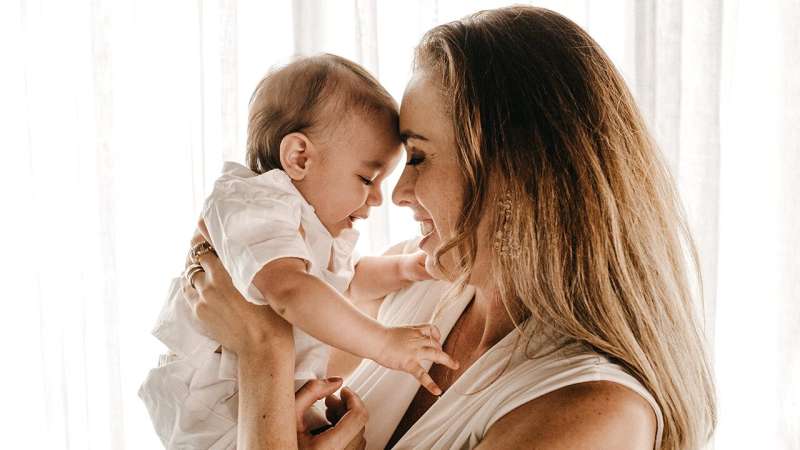This article has been reviewed according to Science X's editorial process and policies. Editors have highlighted the following attributes while ensuring the content's credibility:
fact-checked
trusted source
proofread
Mothers with depression take longer to respond to their children, study finds

A recent study at the University of Missouri found mothers who are struggling with depression tend to take longer to respond to their child during back-and-forth dialogue. The findings provide the basis for further research to determine if the slower response time has any long-term impacts on the children's language development, vocabulary or academic outcomes.
Nicholas Smith, an assistant professor in the MU School of Health Professions, and his team listened to audio recordings of more than 100 families who were involved in the Early Head Start program, a federal child development program for children whose family's income is at or below the federal poverty line. Some of the moms involved were struggling with depression, and Smith's team documented how much time passed in between responses for a mother and her child during back-and-forth dialogue.
"We found that the time gap in between responses, in general, gets shorter between mother and child as the child ages, and we also found the mom's timing tended to predict the child's timing and vice versa," Smith said.
"Mothers and children are in sync. Children who were slower to respond to their mom often had moms who were slower to respond to the child, and children who were faster to respond to their mom had moms who were faster to respond to the child. The significant new finding was that the moms who were more depressed took longer to respond to their child compared to moms who were less depressed."
In the longitudinal study, using audio recordings, they compared the response time of back-and-forth dialogue between mothers and their children when the children were 14 months old and 36 months old. Going forward, Smith plans to further study the dialogue response timing for the same individuals that were recorded in this study when the children were in pre-kindergarten and also when they were in fifth grade to examine how these effects play out later on in the children's development.
"The overall objective we are hoping to accomplish is to better understand how mother-child interaction works as well as the underlying mechanisms and potential factors at play," Smith said. "Once we identify what factors drive successful development outcomes and what factors potentially impair development, we can better identify at-risk children and then tailor potential interventions toward those that can benefit from them the most."
The research is published in the journal Infant and Child Development.
More information: Nicholas A. Smith et al, Maternal depression and the timing of mother–child dialogue, Infant and Child Development (2022). DOI: 10.1002/icd.2389


















